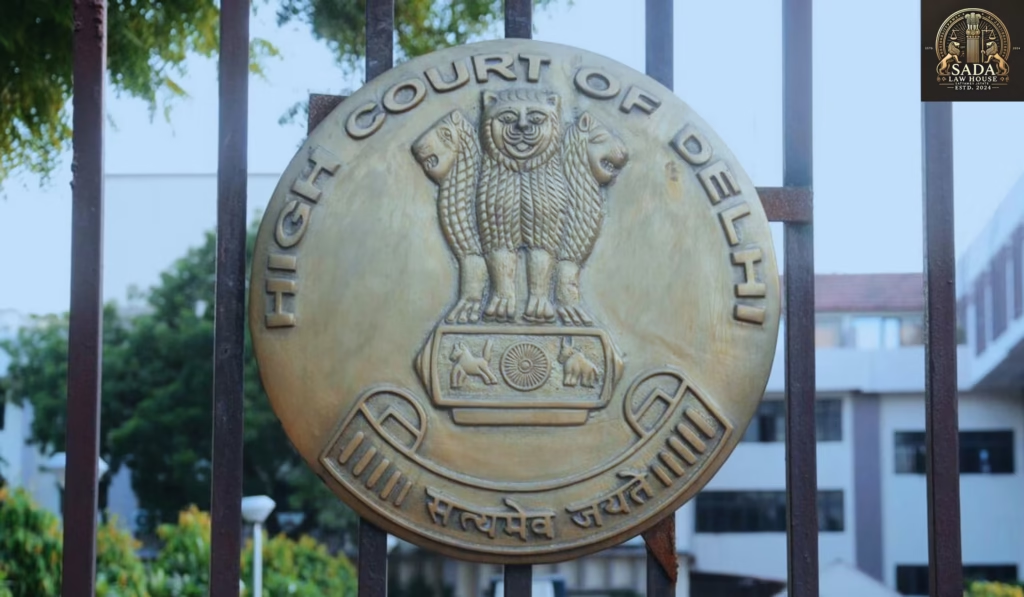Delhi High Court Orders Ghadi Detergent to Remove Disparaging Surf Excel Remarks from Ads
Trending Today Delhi High Court Orders Ghadi Detergent to Remove Disparaging Surf Excel Remarks from Ads Supreme Court Petition Seeks Immediate Suspension of Air India’s Boeing Fleet Over Safety Concerns Supreme Court Refuses Urgent Listing of Hany Babu’s Bail Clarification Plea in Bhima Koregaon Case Supreme Court Clarifies Azure–PPL Copyright Stay: No Impact on Third Parties Bombay High Court Quashes 306 IPC FIR in Loan-Linked Suicide Case, Cites Lack of Instigation Punjab–Haryana High Court Rejects PIL Against Online Betting Ads, Citing Statutory Remedies Under Gambling Law Supreme Court Reserves Interim Order on Waqf (Amendment) Act, 2025: Key Legal and Constitutional Highlights HDFC Bank CEO Sashidhar Jagdishan Moves Bombay HC to Quash FIR in ₹2 Crore Bribery Case Filed by Lilavati Trust IPS Officer’s Husband Arrested in ₹7.2 Crore BMC Redevelopment Scam: Mumbai EOW Crackdown Sparks Integrity Debate Bombay High Court Orders Strict Action Against Illegal Occupants in MHADA Transit Homes Delhi High Court Orders Ghadi Detergent to Remove Disparaging Surf Excel Remarks from Ads PRABHAT KUMAR BITLORIA 25 June 2025 The Delhi High Court has ordered RSPL Limited, maker of Ghadi detergent, to remove offensive remarks about rival Surf Excel from their advertisements. Here’s what the ruling means for Indian advertising standards. Delhi High Court Orders Ghadi Detergent to Remove Disparaging Surf Excel Claims In a recent legal decision, the Delhi High Court directed RSPL Limited, manufacturer of Ghadi detergent, to eliminate disparaging and misleading references to Surf Excel from its television and digital advertisements. Case Filed by Hindustan Unilever Against RSPL The ruling was delivered by Justice Prathiba M. Singh following a lawsuit by Hindustan Unilever Limited (HUL), the parent company of Surf Excel. RSPL was instructed to amend the impugned advertisements by June 24, 2025 before resuming broadcasts. Controversial Ad Statements Targeting Surf Excel The court found three statements in the ads to be blatantly offensive toward Surf Excel and ordered their removal: “Aapka kare badi badi baatein par dho nahi paate” (Your product talks big but can’t clean) “Na Na, yeh dhoka hai” (This is a scam, no lie) “Iske jhaag acche hai, daam acche hai” (The foam is good, and the price is right) The phrase about foam and pricing was seen as a parody of Surf Excel’s iconic slogan, “Daag Acche Hai.” Legal Escalation After Cease-and-Desist Ignored After RSPL refused a cease-and-desist notice dated June 7, 2025, HUL sought legal recourse. The controversial campaign featured popular actor Ravi Kishan and included four commercials released in early June to promote Ghadi detergent. HUL’s Allegations of Brand Infringement HUL’s legal team highlighted three major concerns: Use of blue packaging (both bright and dark shades) Naming the product variant “XL Blue“ Taglines echoing the “Daag Acche Hai” slogan HUL emphasized that Surf Excel has used blue packaging since 1996 and boasts an annual turnover of approximately ₹11,000 crore from Surf-branded products. RSPL’s Defense: Generic Branding Practices RSPL argued that multiple detergent brands use similar blue tones and that terms like “Excel” or blue packaging are not the exclusive property of Hindustan Unilever. They cited trademark caveats that limit HUL’s claims to exclusivity. Court Upholds Fair Competition, Condemns Defamation The Court referred to established guidelines around comparative advertising, noting that while businesses can promote their products, they cannot do so by defaming competitors. “It is permissible for an advertiser to undertake an advertising campaign to promote its own product so long as the same is not deliberately tarnishing or defaming the competitor’s product.” Advertising Ethics: The Line Between Puffery and Defamation The judgment underscores a critical distinction in advertising: puffery—overstated claims about one’s own product—is acceptable, but defamation is not. The Court reiterated that brands must refrain from deliberately misleading or offensive comparisons while competing in the market. Leave a Reply Cancel Reply Logged in as Sada Law. Edit your profile. Log out? Required fields are marked * Message* Live Cases Delhi High Court Orders Ghadi Detergent to Remove Disparaging Surf Excel Remarks from Ads Sada Law • June 25, 2025 • Live cases • No Comments Supreme Court Petition Seeks Immediate Suspension of Air India’s Boeing Fleet Over Safety Concerns Sada Law • June 25, 2025 • Live cases • No Comments Supreme Court Refuses Urgent Listing of Hany Babu’s Bail Clarification Plea in Bhima Koregaon Case Sada Law • June 25, 2025 • Live cases • No Comments 1 2 3 … 5 Next »


